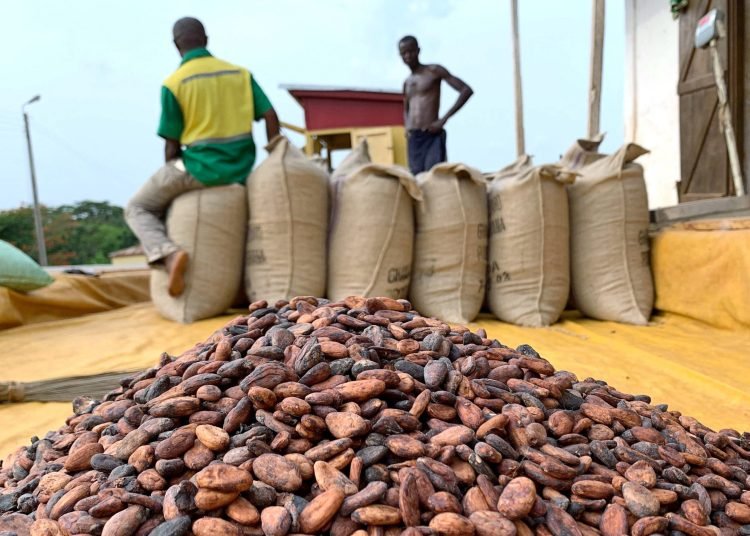The Ghana Cocoa Board (COCOBOD) has announced plans to review laws regarding the destruction of cocoa trees, particularly those felled by illegal miners, locally known as “Galamsey” operators.
At the Ministry of Information’s ‘Meet the Press’ session in Accra, COCOBOD’s Chief Executive, Joseph Boahen Aidoo, highlighted the need for stronger legal frameworks to protect cocoa farms.
“The current laws under the Economic Plant Protection Act 1979 are not stringent enough to deter illegal activities,” Aidoo said.
He emphasized the strategic importance of cocoa to Ghana’s economy, citing its contribution to foreign exchange earnings.
In addition to legal reforms, COCOBOD is seeking to improve compensation rates for farmers whose trees are destroyed.
Aidoo described the current rate of 80 cedis per tree as inadequate, explaining that a single tree could yield up to ten bags of cocoa beans, which is a significant income loss for farmers.
“We are also reviewing the compensations, which are very low… depriving the farmer of his livelihood,” he remarked.
COCOBOD’s efforts aim to balance environmental protection with the economic welfare of farmers and to ensure that cocoa, a vital national commodity, is guarded against destructive activities.
COCOBOD has introduced several initiatives to boost cocoa production and support farmers.
These include a new financing model, traceability systems, and climate-smart production techniques.
Ray Ankrah, COCOBOD’s Deputy Chief Executive in charge of Finance and Administration, reported significant strides in productivity and profitability, noting that the organization recorded a profit of GH¢2.3 billion between 2022 and 2023.
Ankrah also mentioned that the company’s cost rationalization measures, coupled with support from the African Development Bank, are set to sustain COCOBOD’s profitability and enhance Ghana’s cocoa sector in the coming years.






























































